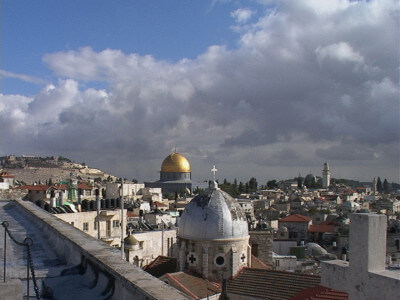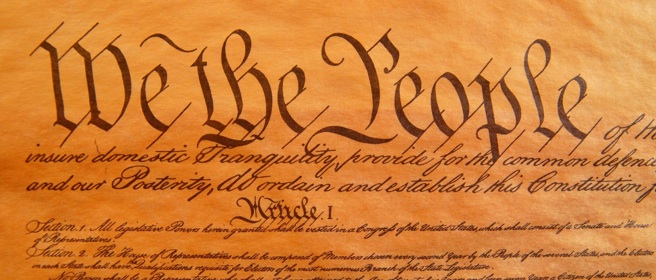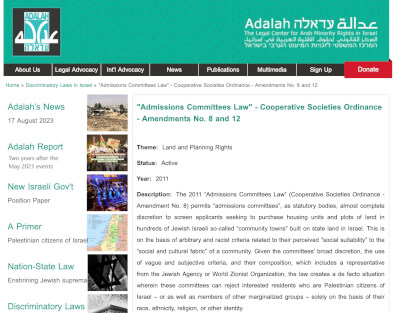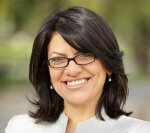Exploring the plight of Christians in the Middle East makes it a difficult journey for those who wish to include Israel’s abuses of Arab Christians. The issue of Christian persecution in the Middle East, Arab World, Muslim World and in Israel, is not written about enough
By Ray Hanania

covering Chicago
City Hall
(1976-1992)
It always amazes me how the brutal politics of the Arab-Israeli conflict can jar the moral compass of normally good people, especially journalists and writers who otherwise show enormous compassion for those who suffer.
But when it comes to the Middle East, many prefer to exclude Israel fro their judgments about major issues because criticism of Israel has many pitfalls, including being banned, bullied and battered by the pro-Israel influenced mainstream American news media.
I thought though that people outside of the U.S. sphere of influence had more freedoms to speak to the truth but that’s not always the case.
Klaus Wivel, a Danish journalism, has written a new book called “The Last Supper: The Plight of Christians in Arab Lands” that touches on the aspect of Christians suffering under Israeli oppression, but seems to soft pedal it a bit focusing instead on Christian persecution in “Iraq, Lebanon, Egypt, and the Palestinian territories.” In the book he quotes my friend Mitri Raheb as explaining that the Israelis are after Christian Palestinians because they are Palestinian, not because they are Christian.
Translated by Mark Kline, Wivel’s book offers insight into the challenges facing Christians, but seems to play down those imposed on Christians by Israel, where Christianity is based. I mean, how do you explore the oppression of Christians if you don’t look at their place of origin and how that presence is being denigrated by a non-Christian political and social movement in Israel?

Israel, by the way, is not just Israel in the 1948 borders but in today’s world we must look at Israel’s influence and impact in the context of the entire region and especially in the context of the Gaza Strip, Jerusalem and the West Bank, all of which Israel occupies either directly or, int he case of Gaza, indirectly through its border controls and its embargo on Gaza’s non-Jewish citizens.
The book is published by New Vessel Press, self-described as an independent publishing house founded in 2012. Here is how the publisher describes Wivel’s book:
“Alarmed by scant attention paid to the hardships endured by the 7.5 million Christians in the Middle East, journalist Klaus Wivel traveled to Iraq, Lebanon, Egypt, and the Palestinian territories on a quest to learn more about their fate. He found an oppressed minority, constantly under threat of death and humiliation, increasingly desperate in the face of rising Islamic extremism and without hope that their situation will improve, or that anyone will come to their aid. Wivel spoke with priests whose churches have been burned, citizens who feel like strangers in their own countries, and entire communities whose only hope for survival may be fleeing into exile. With the increase of religious violence in the past few years, this book is a prescient and unsettling account of a severely beleaguered religious group living, so it seems, on borrowed time. Wivel asks, Why have we not done more to protect these people?”
I don’t know. How do you cover the Middle East and not include Israel as a part of the problem you are exploring? It’s like a glaring omission and it seems to be omitted from the book, or as I said, soft-peddled.
You can’t blame Wivel, though. Any journalist who dares to criticize Israel too hard is targeted, bullied and assaulted by the powerful pro-Israel movement. The American publishing industry has higher standards for books critical of Israel than it does for books critical of the Palestinians and Arab World. In fact, books that are “too critical” of Israel are prevented from ever seeing the light of day by American publishing companies. It’s even worse in the Hollywood industry and in the mainstream American news media which protects this system by silencing voices that question the biases against Palestinians and Arabs.
Wivel seems to do a good job of showcasing how Christians are discriminated by Muslims inside Palestine, such as in Taybeh where Christian-Muslim relations have been on edge. But it’s not all Muslims, of course behind this conflict with the small Christian minority. It’s the religious extremists who are responsible for the troubles there. Relations between most Muslims and Christians have been very good, especially in occupied Palestine where the Israeli oppression targets Muslims as much as it does Christians, which is Raheb’s real point, I believe.
One cannot explore the challenges facing Christians in the Middle East without being candid and forthright about the tensions and violence that has taken place at the hands of some Muslim extremists against Christians. But, if you don’t at least include a serious look at how Israel’s policies of brutality, occupation and superior race religious separation that is driving that oppression of Christians among the persecution of the non-Jewish Arabs by Israel, then you might really be doing a disservice to this very important issue.
I know Wivel is very concerned about the challenges facing Christians in the Middle East and his insights are an important contribution to understanding this growing phenomena of persecution of Christian Arabs and non-Arab Christians in the Middle East (such as Chaldeans, Armenians, Phoenicians and Assyrians). I applaud him for that, even if I think there is still far more that needs to be explored, especially a closer examination of the erosion of the Christian presence in the Holy Land of its origins caused by Israel.
In fairness, I would note that any author attempting to explore the persecution of Christians by Muslims is bullied, persecuted, marginalized and boycotted by the Muslim Arab World, too, maybe even more so than by the pro-Israel movement. Of course, the majority of Muslims are non-Arab. Only about 22 percent of the world’s 1.6 billion Muslims in the world today. No major Arab World media and only a few minor Arab media will permit the publication in any Arab country of a story exploring the persecution and brutality that Christians face in the Muslim World.
So I guess for Christians from the Middle East, we are left with taking what’s published on both sides, the writings that detail Muslim persecution of Christians and the writing that detail the Israeli persecution of Christians ans put them together to try and get a real understanding of the problem.
It would be great if one day someone would attempt to merge the two handicapped explorations of the Christian struggle for survival in the Middle East, Israel, Arab World and Muslim Worlds.
For more information or to purchase the book visit the New Vessel Press website by clicking here. And there is a nice review of the book in Haaretz, one of only a few objective newspapers published in Israel.
Related articles
Middle East Christians Face Extinction
Campaign to silence Christians who challenge Arab World Discrimination


- Israelisnipers shooting and killing hospital workers in Gaza - December 11, 2023
- CAIR Condemns Israeli Executions of Wounded, Unarmed Palestinian in West Bank - December 11, 2023
- Arab and Muslim American voters face a “simple choice” between Biden’s inhumanity and Trump’s edgy politics - December 9, 2023














 Media promote Israeli distortions as civilians dodge airstrikes in Gaza
Media promote Israeli distortions as civilians dodge airstrikes in Gaza













